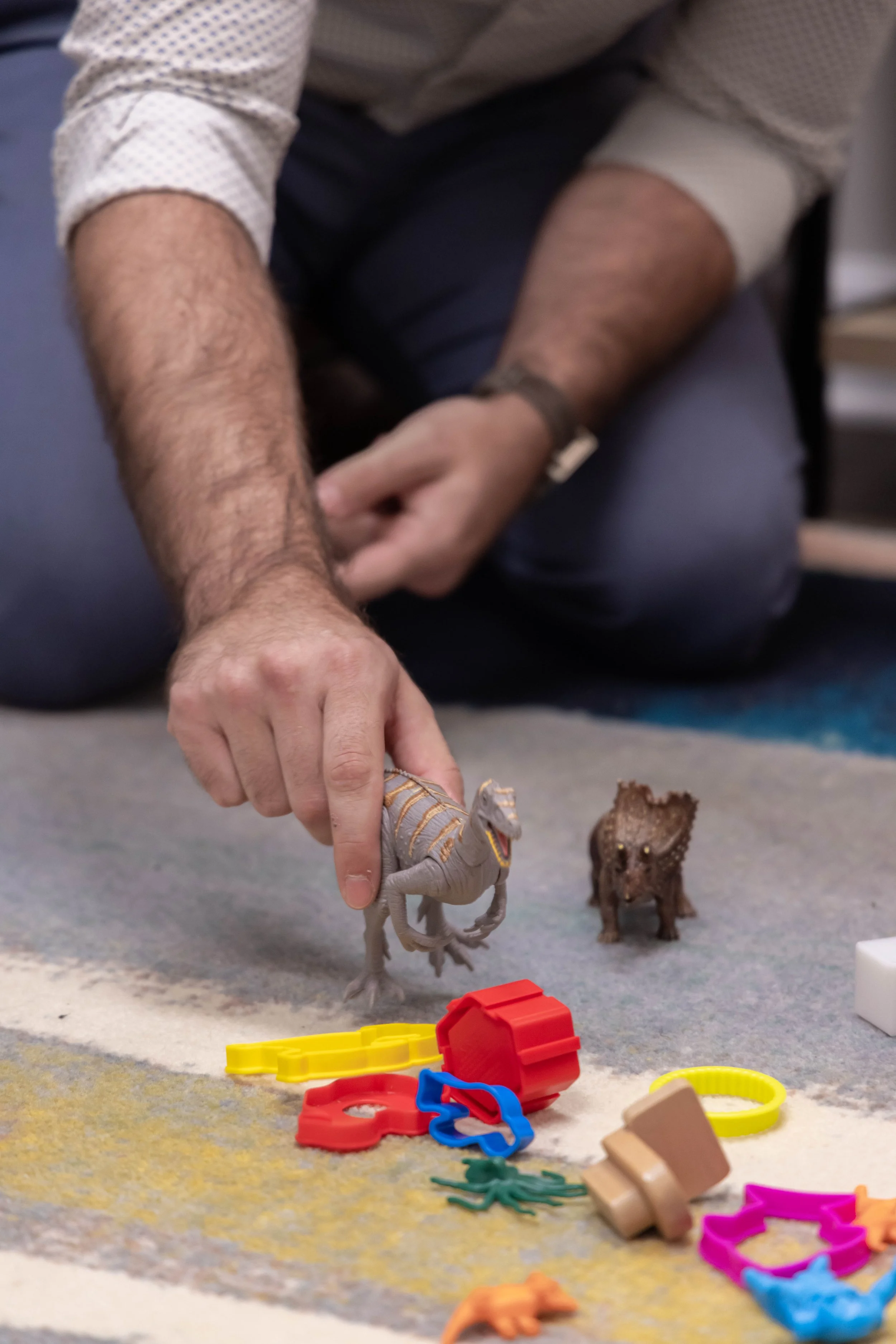Navigating the Middle School Maze: A Therapist's Guide for Parents
Middle school. Just the word can stir up a mix of emotions for parents.
It’s a season of immense change, growth, and—often—challenges. As a therapist who takes a play therapy approach, I frequently work with families navigating these turbulent years. One of the most common concerns I hear is: “My child is getting in trouble at school. What do I do now?”
When a child’s behavior at school becomes a pattern of “getting in trouble,” it’s natural for parents to feel frustrated, helpless, or even angry. You may find yourself torn between punishing the behavior and wanting to understand your child. My advice? Take a deep breath and remember this: behavior is communication.
Beyond the Behavior: What’s Really Going On?
In my work with younger children, play is the language that helps me navigate communication and foster growth. For example, a child might not be able to articulate their anxiety about a new sibling, but they’ll crash toy cars again and again or build a fortress to hide inside.
Middle schoolers are no different—their “play” just looks different. It may show up as a defiant attitude, unfinished homework, or a push against boundaries that leads to behavior reports or even in-school suspension.
When a middle schooler is repeatedly getting in trouble, it often signals something deeper at play, such as:
Social Struggles: Navigating friendships in middle school is complex. Peer pressure, social media, exclusion, and anxiety can all lead to acting out—whether to gain attention, fit in, or avoid painful situations.
Academic Pressure: Workload and expectations increase significantly in middle school. A child who feels overwhelmed, unmotivated, or even bored may resort to disruptive behavior to avoid facing academic challenges.
Emotional Regulation: Adolescence is a time of intense emotions. Without the tools to manage stress, anger, or sadness, kids may act out through defiance or outbursts. Add hormonal changes, and it can feel like living through a tornado.
Identity and Autonomy: Middle schoolers are figuring out who they are. Separating from parents and testing limits is part of the process—though sometimes it shows up in ways that get them into trouble.
From Punishment to Connection: A Therapist’s Approach
While schools often lean on punishment, parents have the opportunity to respond differently—shifting from “What should I punish?” to “What does my child need?” Here are some strategies:
Lead with Curiosity, Not Judgment. When your child brings home a bad report, resist jumping to conclusions. Instead of asking, “Why did you do that?” try, “Can you help me understand what happened today?” This invites honesty and reduces defensiveness.
Create Unstructured Time Together. Middle schoolers still need play, even if it looks different now. Go for a walk, shoot hoops, or play a board game. Resist the urge to lecture—just be with them. These moments of connection build trust and make harder conversations easier later.
Validate Their Feelings (Even if You Don’t Approve of the Behavior). If your child says they acted out because they were “bored,” instead of replying, “You shouldn’t be bored in class,” try: “It sounds like you were really bored, and that was tough to manage. Let’s talk about better ways to handle that next time.” This shows empathy while still holding them accountable.
Team Up with the School. Teachers and counselors are allies, not adversaries. Ask about context: “Does this happen at a certain time of day?” or “Are there patterns you’ve noticed?” The more you know, the better you can support your child—and sometimes the behavior points to academic or social challenges worth addressing.
Consider Professional Support. If behaviors persist or escalate, a therapist who specializes in adolescents can help your child explore their feelings and develop coping skills. Family therapy can also strengthen communication and create a more supportive home environment.
The Takeaway
Middle school is a season of trying on new identities, testing boundaries, and figuring out how to belong. When your child gets in trouble, try to see it as a signal that they’re struggling—not simply as misbehavior. By responding with empathy, curiosity, and connection rather than punishment, you can help them navigate these challenging years and come out stronger on the other side.
Here at Atlanta Wellness Collective, we want to help. For support, contact us or schedule an appointment online.
This blog post was written by Alexandra Fischer.
This blog is not intended to substitute professional therapeutic advice. Talk with your healthcare provider about your health concerns and before starting or stopping therapies. No content on this site, regardless of date, should ever be used as a substitute for direct professional advice from your doctor or other qualified clinician.
VISIT US ON INSTAGRAM @atlwell





